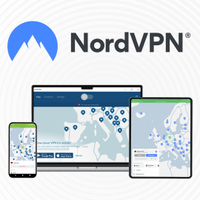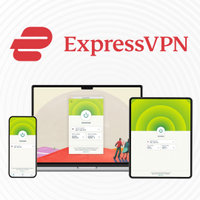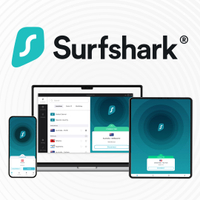Is ThunderVPN the sketchiest VPN of 2024?
100 million downloads don't stop this VPN from looking suspect

There are a lot of scam VPNs out there, so I’m naturally suspicious when I’m reviewing a new VPN I haven’t seen before. I try to keep an open mind, but usually it becomes very evident we’re dealing with a scam provider pretty quickly. When you’re using a VPN you’re handing over all of your browsing data to a third party, so finding one you can trust is absolutely essential. However, I wouldn’t trust the provider we’re looking at today at all.
ThunderVPN is an enigma. There are far too many red flags in play here for me to recommend it, but I’m going to be breaking down exactly why you should give it a miss, and why you should opt for one of the best VPNs instead.
What is ThunderVPN?
What does ThunderVPN claim to be?
ThunderVPN claims to offer a free, fast, and secure VPN service. It promises to protect your online privacy, unblock websites, and keep you safe on public Wi-Fi, with unlimited bandwidth and no-logs policy as its key selling points. However, upon closer inspection, there’s a lot of red flags that tell me that ThunderVPN is neither as secure nor reliable as it claims.
What do you find on Google?
When you Google ThunderVPN, you’ll see there’s both an Android app and an iOS app, both being offered by different companies. Trying to unpick who actually owns or develops ThunderVPN was an absolute headache, but it didn’t fill me with confidence. Whichever app was the true one, they both seemed pretty bad.
Googling for an actual website brought me first to ThunderVPNWin.com, which at first glance you’d think is the ThunderVPN website. Most of the prose talks about ThunderVPN as though they’re the ones developing it, but on closer inspection, it’s actually a “fan” website which leads to one of several different sketchy software download sites when you click the download link. As far as I can tell, ThunderVPNWin isn’t directly affiliated with ThunderVPN but it’s concerning that it’s almost the top link when you look for ThunderVPN.
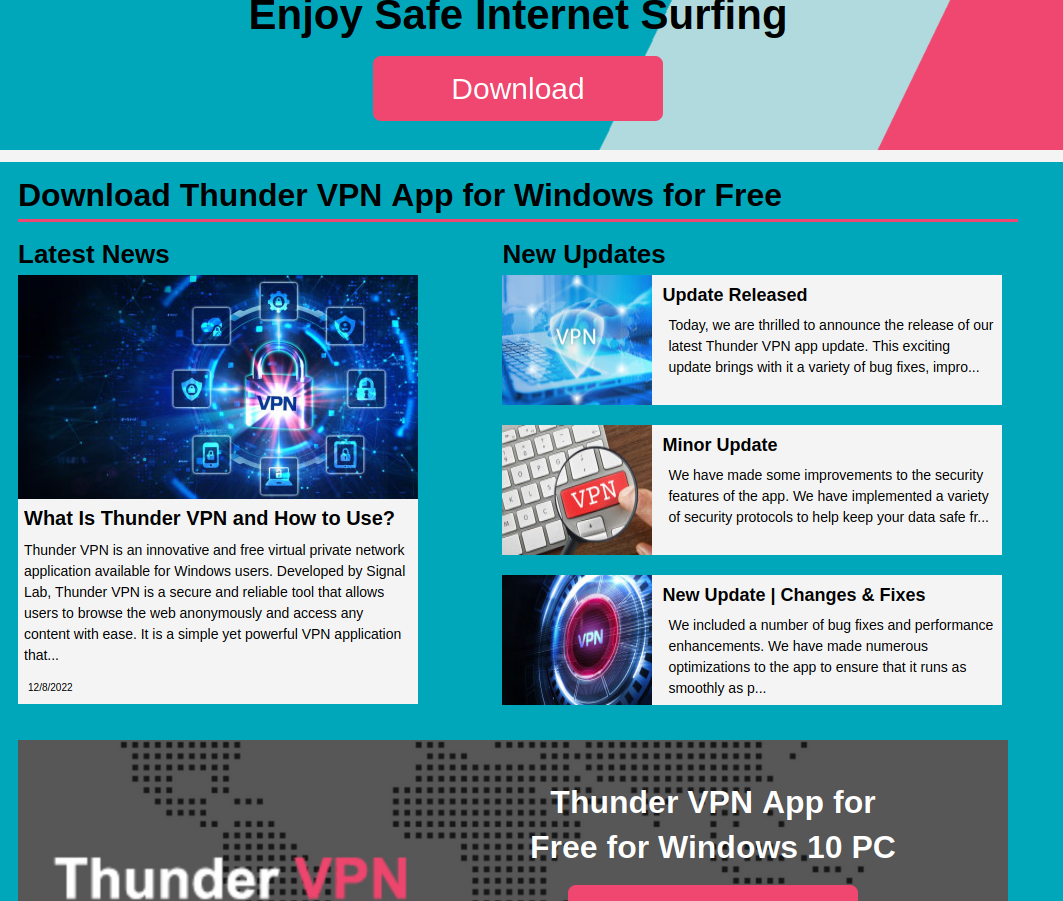
Are its app listings any better?
These sites take you through to the Apple App Store where you can download the mobile version of ThunderVPN. As far as I can tell, there is no Windows version at all despite what the “fan” site claims.
On the App Store, I found out that this version of ThunderVPN is being distributed (supposedly) by MAGICFUN TECHNOLOGY LIMITED, a company incorporated in Hong Kong in 2020. Details on this firm are scarce, to say the least, other than that they offer a similar VPN app called SnapVPN (which I would also not recommend). The developers, Free Secure Connected Software Co., Ltd, do not exist as far as I can tell.
one of the most half-baked attempts at a scam website I’ve ever seen.
Digging through the information available on the App Store, I found its official privacy policy was hosted on thundervpn.xyz which is…just one of the most half-baked attempts at a scam website I’ve ever seen. Come on.
Reading through this site, I realized that I’m not letting this version of ThunderVPN anywhere near my phone. I have no doubt they actually do have an office in some industrial center in Kowloon, but other than that nothing about ThunderVPN makes sense. Given that the iOS version seemed incredibly sketchy, I decided to try and find out more about the Android version.
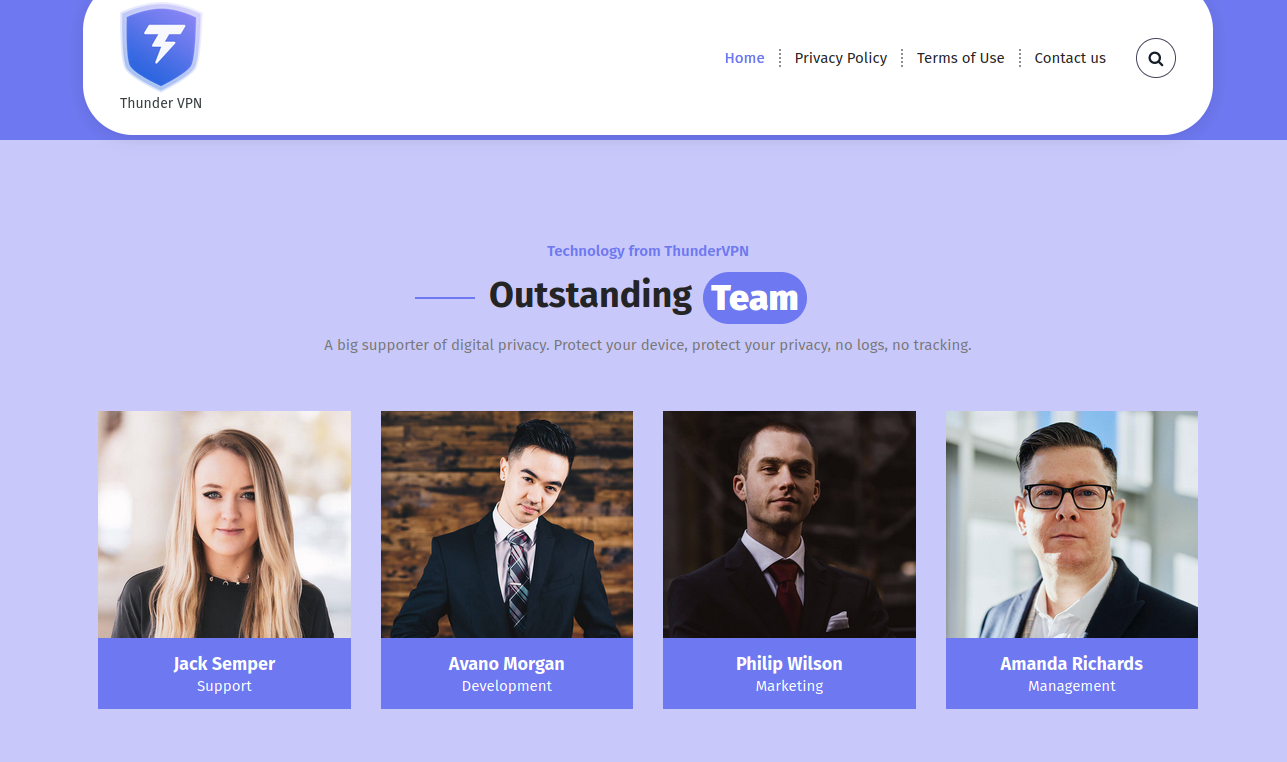
Is there a real ThunderVPN at all?
It was at this point that I discovered there is, in actual fact, a second ThunderVPN with exactly the same marketing and branding. The site, hosted at thunder.free-signal.com, honestly looked like even more of a scam than the first iteration of ThunderVPN I’d dealt with. At least whoever built the “fan” website had the graciousness to post a fake update log. This is about as barebones as you can get:
There’s only a single contact option: a Gmail address. Not incredibly professional.
The app this site linked to is a completely separate one developed by Secure Signal Inc, which as far as I can tell is a real company registered in Delaware. They’re registered through an agent, so it’s unclear where their actual headquarters are or who runs the company. Another brick wall, which isn’t exactly reassuring from a transparency perspective. Digging a little deeper into it, it seems that Secure Signal used to be incorporated in Arkansas, so it’s unclear why they’ve changed. There’s also a Secure Signal in Florida with similarly little information on them.
At the very least, I can now be reasonably sure I’ve found the real page for ThunderVPN at securesignal.app. This one just links back to the download page on Android, which also contains an email address for free-signal.com, so whichever entity is behind ThunderVPN on Android operates both these sites. Considering how shockingly poor the free-signal.com site is, I’d recommend you avoid this app based on that alone.
Secure Signal Inc clearly states that they do not collect any user logs relating to traffic or connection. However, they also state that whenever you “interact with Secure Signal Products”, which while vague I would take to mean using the app, they collect a variety of metadata including your Google Advertising ID which could easily be used to make your traffic no longer anonymous. There’s also no external audit of their no-logs claims, which could very easily be false. On top of all this, Secure Signal Inc is incorporated in the United States which means that it’s vulnerable to both law enforcement requests and gag orders. Not only could Secure Signal be forced to hand over your data at will, but they also wouldn’t be able to tell anyone it had happened.

What are ThunderVPN's features?
For the sake of completeness, I’ll run through the features of the app quickly, but I cannot state this strongly enough. Before I’ve even run ThunderVPN, there’s enough of a stink around how it’s distributed and the people behind it that I wouldn’t even begin to recommend it.
The Android app only supports SSL for VPNs, so no OpenVPN or WireGuard here. It’s terrible for unblocking streaming services, as all I could access on it was YouTube. It’s also dramatically slower than other VPN services I’ve used in the past, most likely as a result of only supporting the SSL protocol. While there is a free option, you’re bombarded with ads every time you connect and disconnect. I’m going to cover some other free VPN providers you should check out instead in a moment, but the takeaway here is that the VPN itself is simply not fit for purpose at all.
How deep is the rabbit hole?
Finally, while wrapping up this review, I noticed something weird.
The Secure Signal site actually has a greyed-out link to the iOS app store. Looping back around to FSCS Co. Ltd, they actually have two apps on the app store.
It’s unclear why this is the case, as there’s no real affiliation between these two developers. However, other reviewers looking into ThunderVPN on Android seem to have uncovered that it’s also being developed by a team in Hong Kong. Unfortunately, this isn’t a Snap VPN or a Secure VPN review so we’ll have to leave the rabbit hole unexplored for now. Instead, here are some better VPNs you can check out.
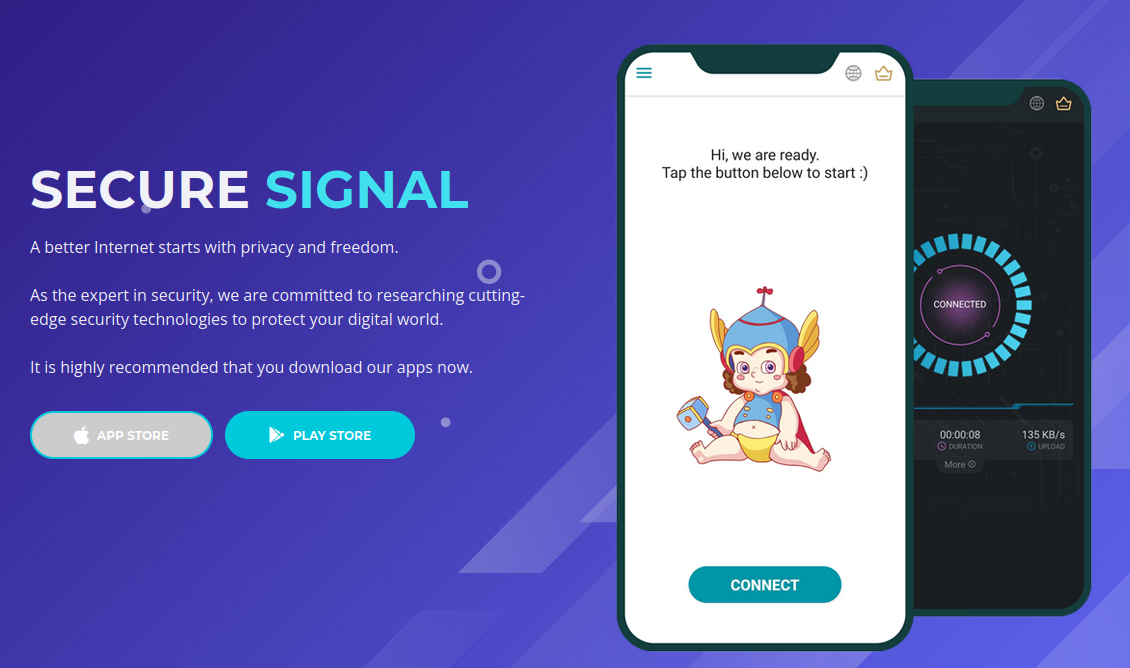
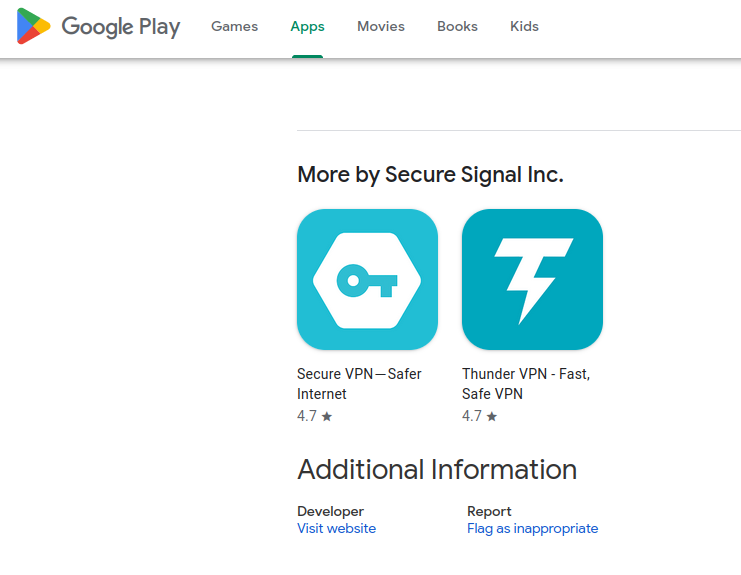
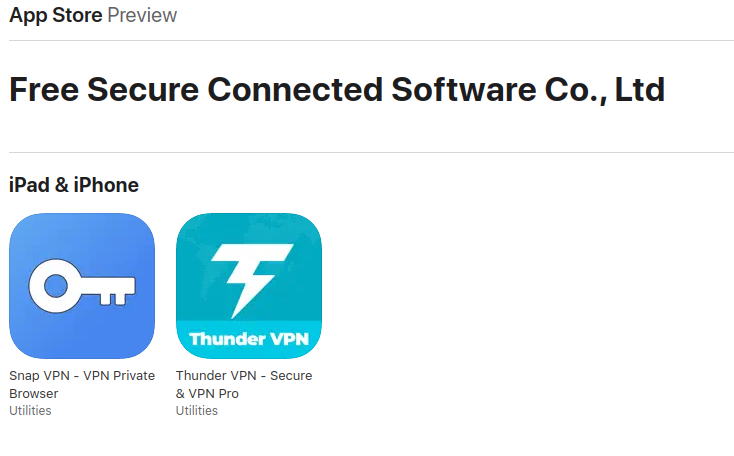
ThunderVPN alternatives
Don’t download ThunderVPN. If you’re looking for a VPN with guaranteed privacy, you should check out one of our top ranked VPNs:
NordVPN
NordVPN regularly tops our best VPN ranking thanks to a combination of unbeatable speeds and strong security features. Their no-logs policy has been independently audited several times so we have total confidence you’re not being spied on when you use NordVPN.
There’s also some interesting features you won’t find anywhere else, such as Meshnet which allows you to build your own personal file-sharing network powered by the same military-grade encryption NordVPN uses to power its VPN protocols. Add in unbeatable stream unblocking capabilities on over 100+ locations and you’ve got the best VPN we’re aware of. With a 30-day money-back guarantee, you can’t go wrong.
ExpressVPN
ExpressVPN is a close second when it comes to high quality VPNs. It’s one of the very best when it comes to connecting from locations other VPN providers simply can’t handle thanks to advanced obfuscation techniques built into their proprietary Lightway VPN protocol. While a little more expensive than the competition, ExpressVPN completely justifies it with lightning-fast speeds and the ability to unblock streaming sites completely seamlessly across a range of devices, including Windows, MacOS, iOS, Android, and Smart TVs.
With a strict no-logs policy that’s been independently audited, you can trust ExpressVPN even in the harshest of environments. They also have a 30-day money-back guarantee so you can try before you buy.
Surfshark
Although Surfshark is a budget-friendly option, you shouldn’t let the price fool you. Surfshark is just as powerful as the rest of the VPNs we’re recommending here, offering the same high-speed connections and powerful unblocking capabilities you’d expect out of NordVPN and ExpressVPN. What’s more, Surfshark is one of the only providers out there to offer a completely unlimited device policy, so you can connect as many devices as you’d like on a single subscription.
There’s also the Surfshark One plan, which adds in a bunch of high-power privacy tools designed to keep you safer on the internet which all integrate tightly into Surfshark’s existing VPN app. Like the other two providers I’ve recommended, Surfshark also comes with a 30-day money-back guarantee for a risk-free trial of the service.

Sam Dawson is a cybersecurity expert who has over four years of experience reviewing security-related software products. He focuses his writing on VPNs and security, previously writing for ProPrivacy before freelancing for Future PLC's brands, including TechRadar. Between running a penetration testing company and finishing a PhD focusing on speculative execution attacks at the University of Kent, he still somehow finds the time to keep an eye on how technology is impacting current affairs.
